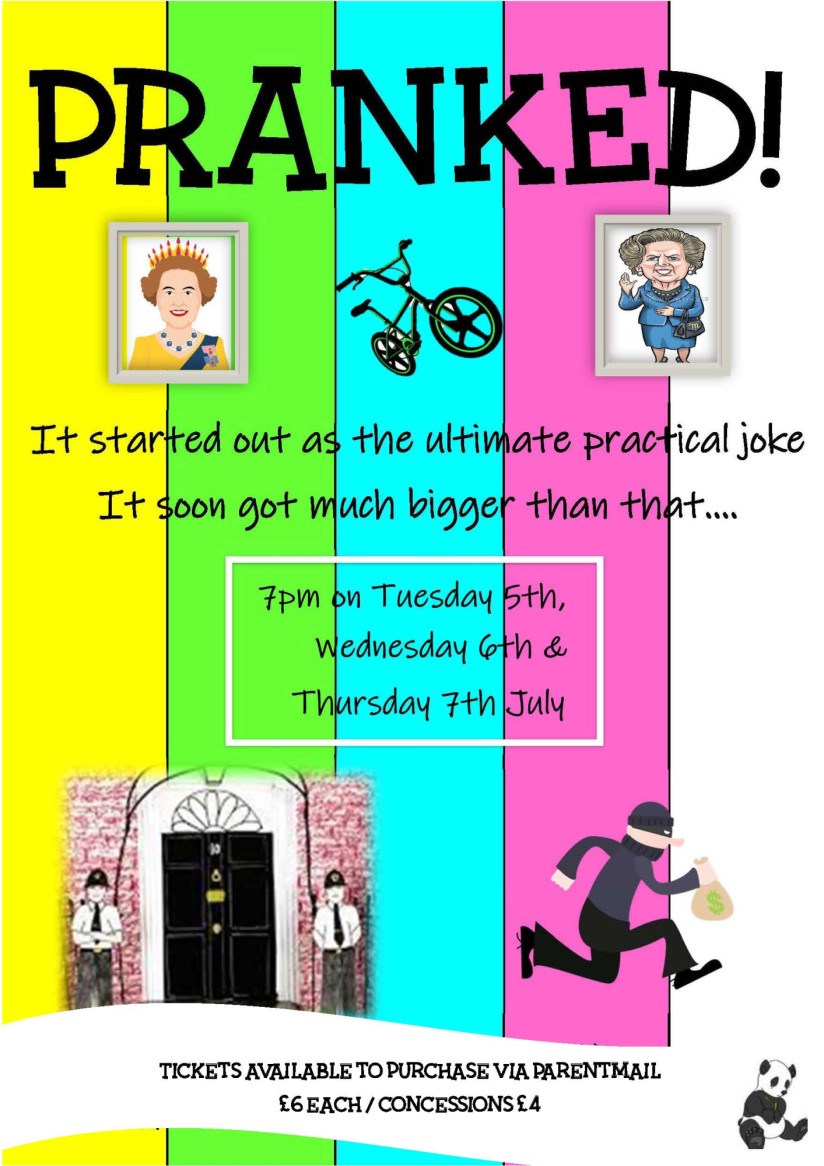Secondary
PRANKED!
DISCLAIMER
This play was mostly written in the autumn of 2019. It is the story of a school-boy from the 1980s and, in that context, the script references events, attitudes and fears of the time. Events such as the lengthy teachers strike that caused children to miss regular and significant chunks of school; fears like the constant expectation of nuclear warheads hurtling towards us from a belligerent Soviet Union.
In that late autumn of 2019, we could look back on such things with a benign chuckle, mildly smug at how far we’ve come since then. The only unexpected time out of school any modern student could expect would be the occasional snow day. And as for the idea of Russia being any kind of global threat - those were the bad old days of the cold war; thank goodness that’s over.
Kind of a lot’s happened since then.
SCHOOL 1980s STYLE
Any student travelling back in time from 2022 to 1987 would find school both immediately familiar and deeply strange. The structure of the school day would be the same with registration, lessons, breaks, lunchtime clubs, homework. Students complained about the same things then as now (although the confiscated mobile phone has replaced the confiscated Rubik’s Cube).
However, the differences would be stark; the most obvious being the lack of the technology we now take for granted. Technology that has greatly enriched the experience of learning in the classroom, but also allows teachers to monitor and support pupils’ attendance, progress and wellbeing in ways that would have been unimaginable in 1987. That said, the concept of student wellbeing, the notion that mental health should be given the same or greater priority as their educational progress was virtually unheard of and the things we were allowed, even encouraged to do back then that would have a modern health and safety officer reaching for the oxygen.
Maybe it was just the school I went to; a sprawling, gargantuan site with upwards of 1500 pupils, squeezed into temporary buildings that were already twenty years old at the time (and, according to Google Earth, still there today). It had a wood, into which many a student disappeared at lunchtime, emerging in time for the buses, a lake, into which students (usually sixth form) were occasionally thrown, a swimming pool behind where the smokers headed on mass every break time. Smoking by pupils under sixteen was banned, but no teacher ever ventured there, not if they could help it. Perhaps they considered the 150 odd pupils merrily lighting up were happy, occupied and therefore not causing havoc elsewhere.

There were some excellent teachers for sure, but for many pupils, and more than a few teachers, there was a strong sense of them and us and maybe it is this, the fundamental relationship between teachers and pupils, that most characterises the change over the last forty years. The Headmaster, surely the one to set the tone here, was a remote figure who stalked the buildings, wearing his black cape like a petulant raven. For the first half term of my time there I didn’t even know who he was. He rarely spoke to students individually, barring the occasional bellow towards an adventurous third year attempting to scale the high-rise known as B Block but when he entered a classroom, we were expected drop everything and stand. In my whole seven years there, I had one conversation with him. I was in the upper sixth (Year 13) and he still got my name wrong twice in the same conversation.
We had some things students today can only dream of; free musical instrument lessons for all, a bus at five o’clock to take home anyone staying for after school band practice, football club or detention, burger and chips on the menu every day (I had a friend who had burger and two portions of chips for lunch every single day from fourth year when he arrived to upper sixth) There was a tuck shop selling crisps and chocolate bars – unofficially dubbed the D block canteen. There were some upsides to being at school in those days.
Maybe these are all notional differences; maybe nothing of substance has changed. But, standing now on the other side, I am convinced that, if schools have genuinely improved over the last few decades (as I believe they have), more than any curriculum drive, overhaul of exams or other Whitehall initiative, it is the relationship between teacher and pupil that raises education standards higher than ever.
